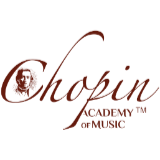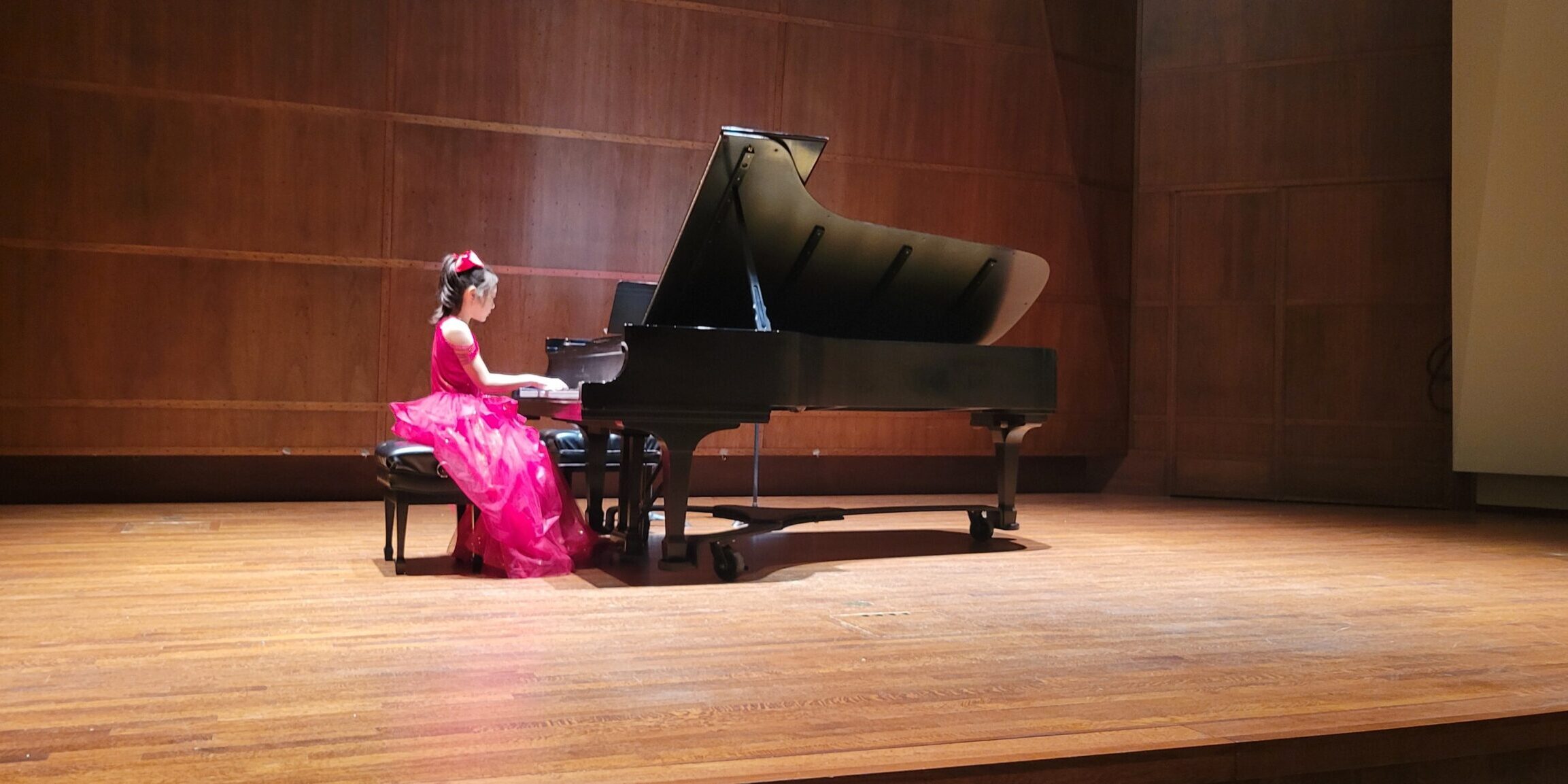🎹 The Hidden Key to Success: Why the Piano You Practice On Matters
When families search for piano lessons in Issaquah, they often focus on the teacher, the program, or the schedule. And that is to be commended! But there’s another factor just as crucial to a student’s success—the instrument itself.
A piano isn’t simply a tool; it’s a partner in artistry. The touch, tone, and responsiveness of the piano you practice on every day directly influence how a student learns to play, to listen, and ultimately, to express music.
Why Concert Instruments Are So Challenging
Students often discover that performing on a concert grand feels entirely different from practicing at home, and to a parent they can sound very, very different on the stage. Even advanced pianists can be caught off guard by how heavy the action of a fine (or not so fine) concert instrument feels beneath their fingers. There are several reasons for this:
- Even respected halls don’t always have perfect instruments. Many concert pianos have decades of history—what technicians affectionately call “city miles.” Though well-maintained or even rebuilt, time and constant use change how they respond.
- Each concert piano is voiced for its own purpose. Some are bright and penetrating to project over a full orchestra; others are intentionally muted for chamber or vocal work. A pianist must constantly adapt.
- Neglect is common. Many otherwise fine instruments are stored in overly dry halls, exposed to sunlight, or inadequately serviced. Without regular maintenance, even the best pianos lose sensitivity and depth.
So when a young performer finally sits down at one of these instruments, it’s no surprise that it feels foreign—especially if their home piano is light, uneven, or digital. Part of a pianist’s skill set is being able to quickly size up an instrument and adapt on the spot. Still, optimizing a student’s at-home practice situation can be an extremely important part of the equation.
Why Digital Keyboards Don’t Prepare You for the Real Thing
Digital keyboards are convenient, space-saving, and affordable, but they create long-term challenges. In our experience, students who practice exclusively on digital instruments often learn to play with fingers only, never developing the use of arm weight—the fundamental technique that produces tone, color, and contrast on acoustic pianos.
When such students encounter a grand piano, they struggle to project sound or control dynamics. Their tone becomes flat and non-projecting, and no amount of practice on a digital keyboard can replace the tactile feedback of felt hammers, a concert-length lever action, a tension-weighted damper pedal, and soundboard resonance.
A good acoustic piano, on the other hand, trains strength, coordination, and musical sensitivity—skills that carry naturally to the concert stage.
The Problem with Upright Pianos
Even quality vertical pianos can limit a student’s growth. Their actions are inherently lighter and shallower than grands, and with age they lose regulation and tonal balance. The sound grows bright and uneven; keys feel unpredictable; repetition is unwieldy.
This inconsistency forces students to compensate with finger pressure rather than whole-arm motion, resulting in tension and restricted expression. Over time, the instrument itself becomes a barrier to progress.
Building a Better Practice Environment
If you’ve already taken the time and effort to seek out the best piano lessons in Issaquah, you’ve done your research. You’ve found expert faculty, performance opportunities, and an inspiring community. But there’s still one vital question to ask:
Is there more you can do to help your child reach their full potential?
The answer begins at home—with the piano itself.
- Get the best piano you can afford. Reputable brands like Steinway, Yamaha, Kawai, Baldwin, and Mason & Hamlin have earned their names through precision craftsmanship and longevity. These instruments maintain consistent touch and tone over decades of use.
- Keep your piano voiced and regulated.
- Regulation ensures every key feels uniform and responsive.
- Voicing adjusts the shape and density of hammer felts where they strike the strings. Over time, these felts harden and deform, producing harsh tone and limited dynamic range. Proper voicing restores balance and allows a pianist to shape sound—from the softest whisper to the fullest fortissimo.
- Regular tuning is also key to preserving piano longevity and ensuring tone stays pleasing. Twice a year is recommended for students who practice an hour or more per day. Once per year is a minimum, even if a piano sees less use, ensuring the strings are able to move easily between friction points.
- Heavier and slightly muted is better than light and loud. In the home, pianos naturally sound louder than in concert spaces. A slightly “voiced down” instrument encourages healthy arm use and projection, preparing students for the larger halls where sound must travel.
The “Wait and See” Trap
Many parents say,
“We want to wait and see if my child is really interested before investing in a good piano.”
It’s an understandable sentiment—but one that often leads to missed opportunity. The early years of piano study are when the foundation for proper touch, tone, and technique is formed. Waiting too long can have lasting consequences.
Here’s why the “wait and see” approach rarely works:
- It reinforces poor technique. Students practicing on light keyboards or neglected uprights develop “finger-only” playing habits that are extremely difficult to correct later.
- Critical growth years are lost. By the time a parent commits—often when a child is 13 to 15—schoolwork, sports, and other activities limit practice time. The crucial window for technical development has passed.
- A better piano sustains interest. A responsive, rich-sounding instrument rewards effort and keeps motivation alive. Students stay interested because the piano itself feels inspiring.
- Inferior instruments cause frustration. Sticking keys, squeaky pedals, and uneven tones make it hard to enjoy playing. It’s often not the child’s lack of interest—it’s the piano’s lack of cooperation.
- Delaying often costs more. Parents end up buying twice: first an inadequate instrument, then the one the student really needed. Investing early saves money and years of frustration.
- Confidence comes from control. When a young pianist hears beautiful sound emerge from their own playing, it builds pride and emotional connection—fueling long-term commitment to the instrument.
Rather than waiting to see if a child will be interested, providing a proper piano helps create that very interest.
Buying Smart: Why a Reputable Dealer Matters
A piano purchase is both a musical and financial investment—and, like any investment, it requires informed guidance. Unfortunately, online marketplaces and classified ads are full of pianos that appear fine on the surface but hide costly problems beneath.
Common pitfalls include:
- Gray market pianos—instruments built for climates abroad (especially in Asia) that warp or crack in North American conditions.
- Worn or unstable parts, such as compacted felts, cracked soundboards, or loose tuning pins.
- Structural instability, affecting the case, pedals, or action regulation.
Before purchasing any used piano, always consult a Registered Piano Technician (RPT) certified by the Piano Technicians Guild (www.ptg.org).
At the Chopin Academy of Music, your primary instructor can also advise you on reputable local dealers, technicians, and piano models suitable for your level and goals. We’ve learned from experience—sometimes the hard way—that professional advice makes all the difference.
The Long View
A fine piano isn’t a luxury—it’s the foundation for lasting musical growth. The right instrument cultivates control, expression, and confidence in ways that no digital keyboard or aging upright can match. Many of the finest made instruments collect dust in the drawing rooms of many Northwest elite homes. However, they should really be put to use in the home of a young learner who will benefit from a great piano.
In a vibrant musical community like Issaquah—filled with recitals, competitions, and concert opportunities—owning a responsive, well-maintained piano bridges the gap between home practice and the concert stage.
If you’ve already chosen the most exceptional piano lessons in Issaquah here at the Chopin Academy of Music, take the next step: give your student an instrument worthy of their effort. With the right piano, consistent care, and expert instruction, you’ll help unlock a lifetime of musical potential.








